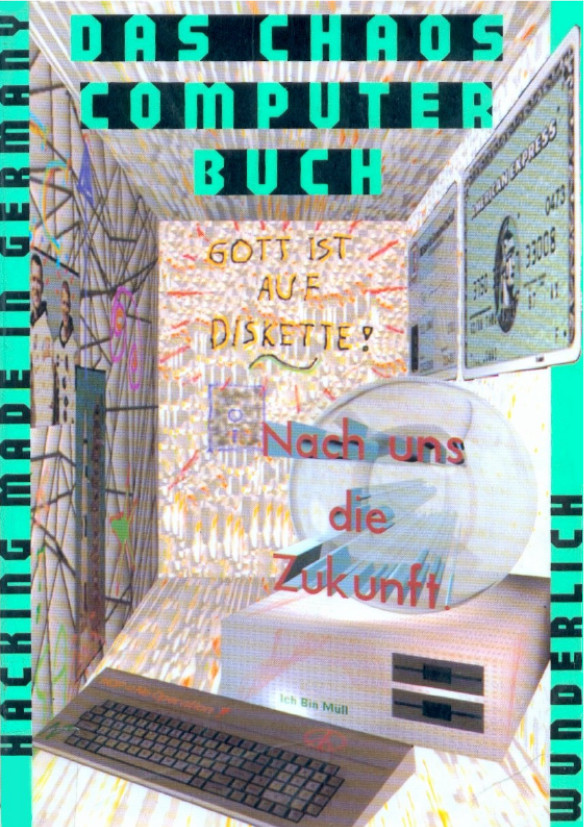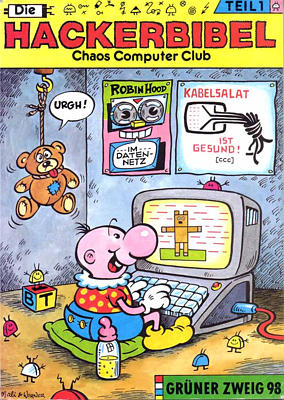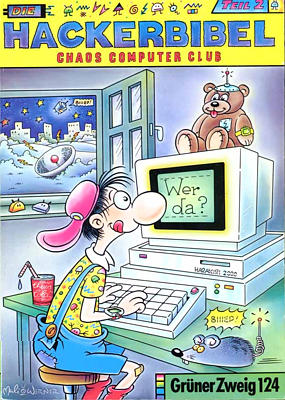Journal of Peer Production, No. 1: Productive Negation (2012)
Filed under journal | Tags: · activism, commons, networks, p2p, peer activism, peer production
The inaugural issue of the Journal of Peer Production was published under the title Critical Studies in Peer Production. It was then hosted by Oekonux, a non-profit organization devoted to the theoretical and practical advancement of peer production. However disagreements about the direction of the journal led to the editorial team deciding to leave Oekonux and relaunch the project under a new name. The Journal of Peer Production is now hosted by the Foundation for P2P Alternatives, a non-profit organization aiming to study the impact of peer to peer technology and thought on society.
The Journal of Peer Production (JoPP) seeks high-quality contributions from researchers and practitioners of peer production. We understand peer production as a mode of commons-based and oriented production in which participation is voluntary and predicated on the self-selection of tasks. Notable examples are the collaborative development of Free Software projects and of the Wikipedia online encyclopedia. Through the analysis of the forms, operations, and contradictions of peer producing communities in contemporary capitalist society, the journal aims to open up new perspectives on the implications of peer production for social change.
Contributions by George Dafermos, Stefano De Paoli, Vincenzo D’Andrea and Maurizio Teli, Francesca Musiani, Michel Bauwens, Jakob Rigi, Christian Siefkes, Jean Zin, Stefan Meretz, Maurizio Teli, Toni Prug
Editors: Mathieu O’Neil (coordinator), Athina Karatzogianni, George Michaelides, Johan Söderberg, Maurizio Teli, Nathaniel Tkacz
Published in July 2012
View online (HTML articles)
Comment (0)Jürgen Wieckmann (ed.): Das Chaos-Computer-Buch: Hacking made in Germany (1988) [German]
Filed under book | Tags: · computing, hacker culture, hacker ethic, hacking, machine, networks, programming, security, technology

Wie wurde der NASA-Rechner geknackt? Wie funktionieren Computerviren und logische Bomben? Sind Hacker Schwarze Schafe im Wolfspelz? Jenseits des Medienrummels legt dieses Buch einen Blick hinter die Kulissen des Spektakulären frei. Alles über die Hackerszene, über Hackerpraxis, Technik, Auswirkungen und Anwendungen. Alles über den bereits legendären NASA-Hack. Über Lebensgefühl und Erlebnisse im Globalem Datennetz. Alles über Viren, Trojanische Pferde und logische Bomben.
Verlag Wunderlich, 1988
ISBN 3805204744, 9783805204743
237 Seiten
Chaos Computer Club (ed.): Die Hackerbibel, 1-2 (1985, 1988) [German]
Filed under book | Tags: · computing, germany, hacker culture, hacking, history of computing, history of technology, internet, machine, networks, privacy, programming, radio, security, technology, telephone, video


“Die Hackerbibel ist eine Publikation des Chaos Computer Clubs. Sie ist bisher in zwei Ausgaben in den Jahren 1985 und 1988 erschienen. Beide Ausgaben wurden von Wau Holland herausgegeben und vom Verlag Grüne Kraft veröffentlicht.
Die Hackerbibel ist ein Sammelsurium aus Dokumenten und Geschichten der Hacker-Szene, wie beispielsweise die Bauanleitung für den als „Datenklo“ betitelten Akustikkoppler. Sie bietet darüber hinaus Bauanleitungen und andere technische Hintergründe. Die 1. Ausgabe erschien 1985 mit dem Untertitel Kabelsalat ist gesund, und erzielte bis Mitte 1988 eine verkaufte Auflage von 25.000 Exemplaren. Die Ausgabe 2 aus dem Jahr 1988 wird auch Das neue Testament genannt. Die Comic-Zeichnungen der Umschlagbilder sind eine Schöpfung der deutschen Comic-Zeichner Mali Beinhorn und Werner Büsch von der Comicwerkstatt Büsch-Beinhorn. Die Produktion und der Vertrieb der Hackerbibel wurde schon vor 1990 eingestellt. Seit 1999 bietet der CCC eine gescannte und im Volltext verfügbare Version mit weiterem Material, wie Texte von Peter Glaser, eine Dokumentation zu Karl Koch und die Arbeiten von Tron, auf der Chaos-CD an.” (wikipedia)
Die Hackerbibel Teil 1. Kabelsalat ist gesund, Grünen Kraft, Löhrbach, ISBN 3922708986, 260 Seiten
Die Hackerbibel Teil 2. Das neue Testament, Grünen Kraft, Löhrbach, ISBN 3925817247, 260 Seiten
PDF (Teil 1, 56 MB, no OCR, updated on 2024-2-3)
HTML (Teil 1, updated on 2024-2-3)
PDF (Teil 2, 43 MB, no OCR, updated on 2024-2-3)
HTML (Teil 2, updated on 2024-2-3)

